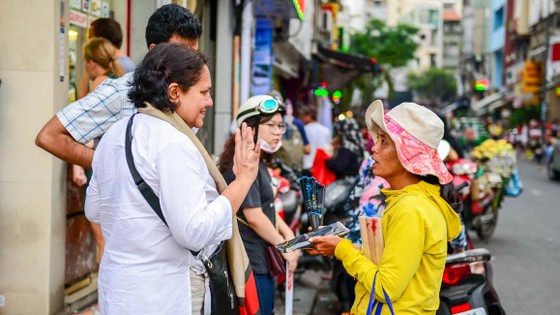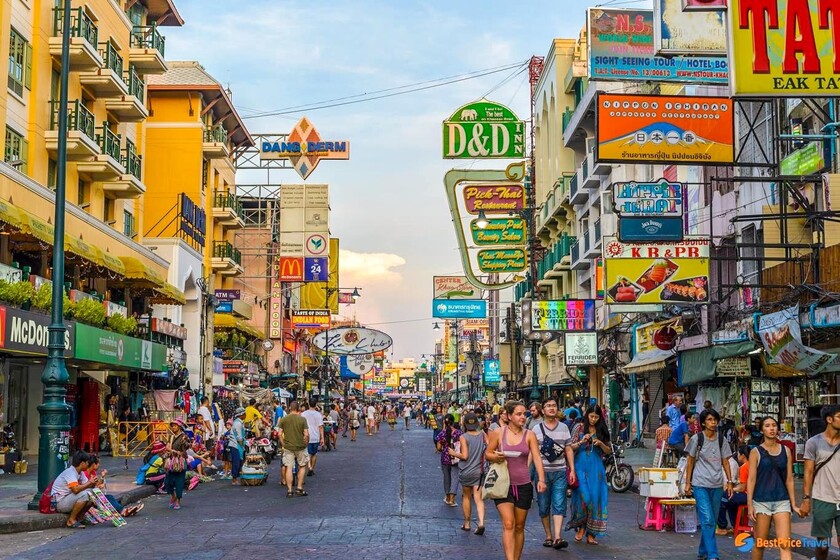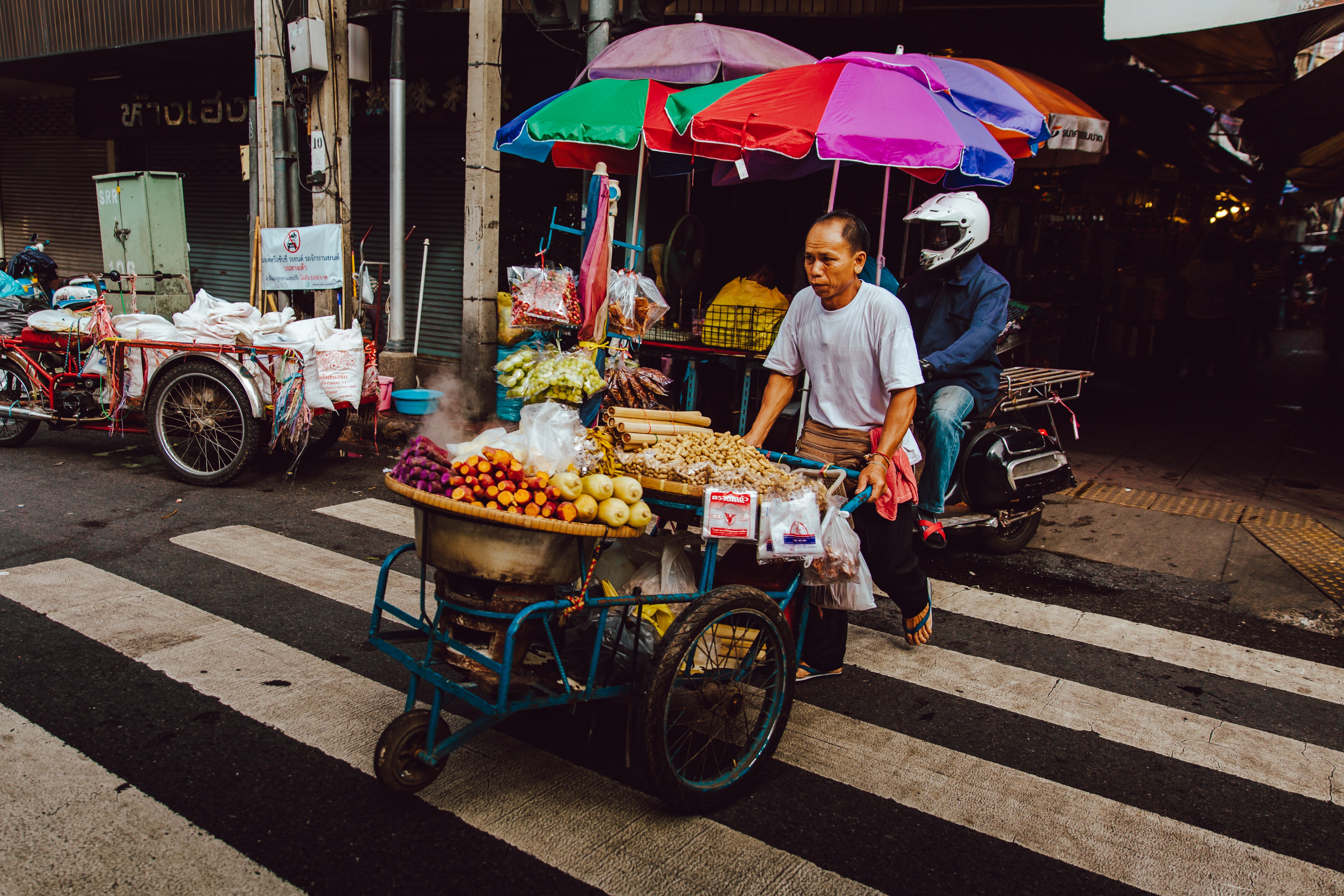Numerous articles, reports, conferences, and seminars have attempted to explain why the number of international tourists visiting Vietnam is consistently lower than that of Thailand and other countries in the region, despite seemingly having superior aspects. There are many reasons for this, among which the problem of overcharging tourists is considered particularly serious.
Consequently, tourists can encounter dishonest people anywhere, such as taxi drivers, motorbike taxi drivers, street vendors, and food establishments. Even hotels and service companies overcharge customers, raising prices for rooms and other services whenever they have the chance. This problem is so serious that foreign tourists are always warned before coming to Vietnam, and that's why they don't want to return.
Most recently, Thai newspapers reported on May 18th that a Vietnamese street vendor in Bang Yai district, Nonthaburi province, tampered with a scale, selling a 4kg durian to a customer as if it weighed 4.5kg, cheating them out of 75 baht (approximately 2.2 USD, equivalent to 50,000 Vietnamese dong). This person faces 7 years in prison and an 8,000 USD fine (approximately 200 million dong) for violating Thailand's Measurement Act.
From 1999 to the present, over 24 years, Thailand has only had 585 people arrested for defrauding customers related to inaccurate weighing and overcharging. This means that approximately 20 people in Thailand commit fraud each year. Reading this information, we understand why international tourists love visiting Thailand.

Persistently hawking goods to tourists is a common sight at tourist destinations in Vietnam.
The above case started with the durian incident in Thailand, and in Ho Chi Minh City, it could begin with the coconut incident. Most recently, on March 29th, a group of three German tourists were forced to pay 300,000 VND for two coconuts, while their actual price was only 10,000-12,000 VND.
The incident, which took place in front of the Reunification Palace, was immediately posted online by a German tourist with photos and a video clip. It spread incredibly quickly, garnering tens of thousands of views and comments.
A few days later, some newspapers republished the story, but the matter ended there. In fact, the issue of coconut vendors overcharging customers has been reported in the media for many years. However, this problem has not only failed to be eradicated but has persisted and even transformed, brazenly defying public opinion, leaving people wondering why?
The group of street coconut vendors consists of about 30 people, temporarily residing in District 4. Every day they split into small groups of 3-5, occupying areas frequented by foreign tourists. Their main business locations include five main spots: around the War Remnants Museum; in front of the Reunification Palace; in front of the City Post Office and Notre Dame Cathedral; Tan Dinh Church and Le Van Tam Park; and in front of the Saigon Zoo.
In addition, they expanded their service area by following tourists along major streets in Districts 1 and 3, such as Le Duan, Nguyen Thi Minh Khai, Nguyen Du, Ly Tu Trong, Nam Ky Khoi Nghia, Vo Van Tan, etc.

At a tourist spot in Thailand, street vendors have been moved into designated areas.
To lure tourists into their trap, they devised a perfect "scenario." They exploited the psychology of tourists who love taking photos with unusual things. Upon spotting a tourist (their prey), they cheerfully offered a basket of coconuts to the tourist, letting them hold the coconuts for a photo.
Tourists happily pose for photos with coconuts in their hands, alongside vendors carrying their baskets on their shoulders… very Vietnamese. As soon as the photo session is over, the coconut in the tourist's hand is quickly cut in half, and the vendor gives it to the tourist to drink for 200,000 dong. If the tourist thinks it's too expensive, the vendors signal to calculate the cost of the coconut, the carrying pole, and the vendor's fee for posing.
In cases where customers ask to buy, they hold up ten fingers, making the customer think it's 10,000 VND, but when it comes time to pay, it's 10 USD. If tourists are too assertive, their accomplices immediately appear with menacing faces, shouting, struggling, and cursing. With this method of extortion, each coconut vendor can earn 600,000-700,000 VND per day.
During hot days like this past May, they easily earned millions of dong. It's worth mentioning that extorting money from foreign tourists happens all over the country, from Son La, Nha Trang, Da Nang, Vung Tau, Can Tho... you'll find it everywhere.
Seeing this offensive and arrogant scene, everyone was indignant and outraged, from taxi drivers and tour guides to onlookers, but no one dared to intervene. Even the youth volunteers were wary of this group, and the traffic police didn't get involved either, because it wasn't their job.
The responsibility for handling such incidents has traditionally been considered the responsibility of the local police. However, local police only intervene when someone comes to the station to report a problem. Meanwhile, tourists, no matter how upset they are, never go to the police station. They'd rather lose a few dozen dollars to let it go than deal with authorities, not knowing what might happen next. As tourists, everyone wants their short trip to be trouble-free.
Returning to Bangkok, why do Vietnamese tourists rarely complain about shopping there? Firstly, Thai people are very decent and kind; they don't overcharge tourists, including vendors and stalls on sidewalks and alleyways. Secondly, they can't do that because if anything happens, the tourist police and environmental police will be there immediately.
According to Bangkok's statistics, the city currently has approximately 300,000 street vendors. Their movements and business practices are constantly monitored by authorities. This is because Bangkok is equipped with surveillance cameras everywhere, street vendors have identification numbers, and their phones are fitted with GPS tracking chips.
For tourists, 200,000-300,000 VND isn't a large sum, but the resentment and fear of being robbed will haunt them throughout their trip. Such unpleasant incidents make them discouraged and unwilling to return again. A German female tourist who was robbed of 300,000 VND for two coconuts wrote on Facebook: "We were in Ho Chi Minh City for 3 days and felt terrible; this is definitely the most unforgettable experience in Vietnam."
If they can't even resolve such a small issue, how can they attract tourists like Thailand or Singapore?

 VI
VI EN
EN

































